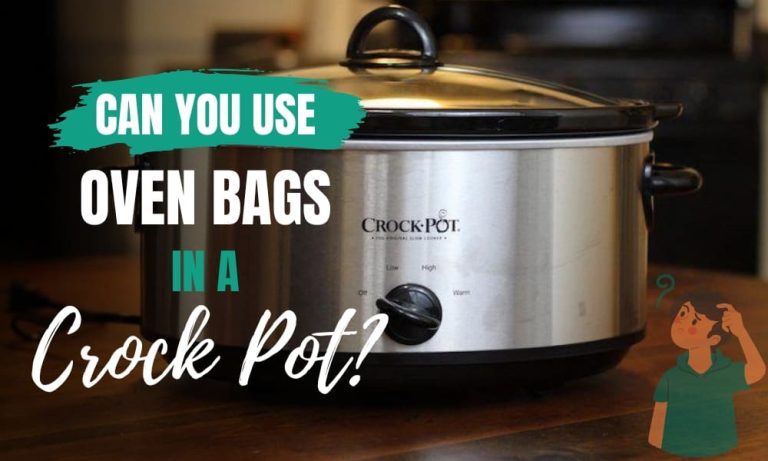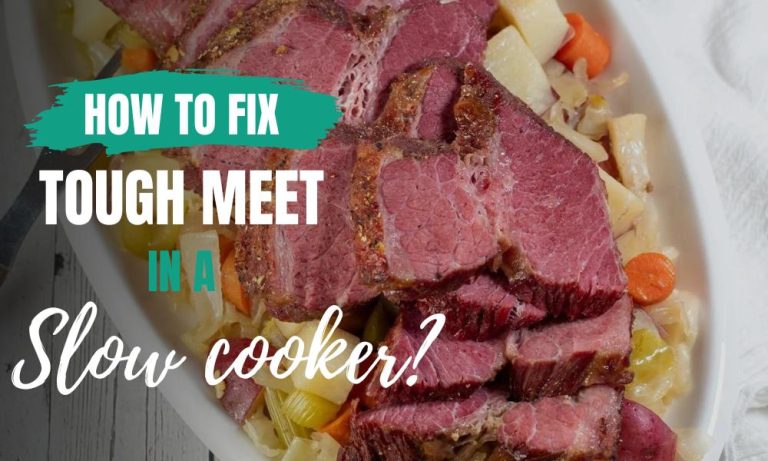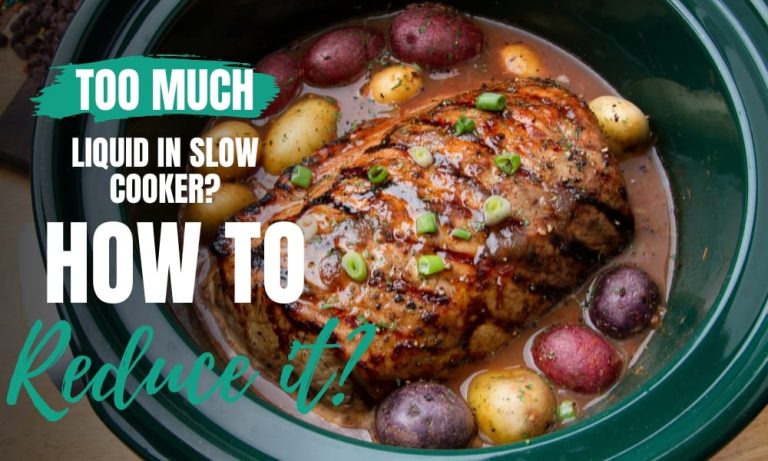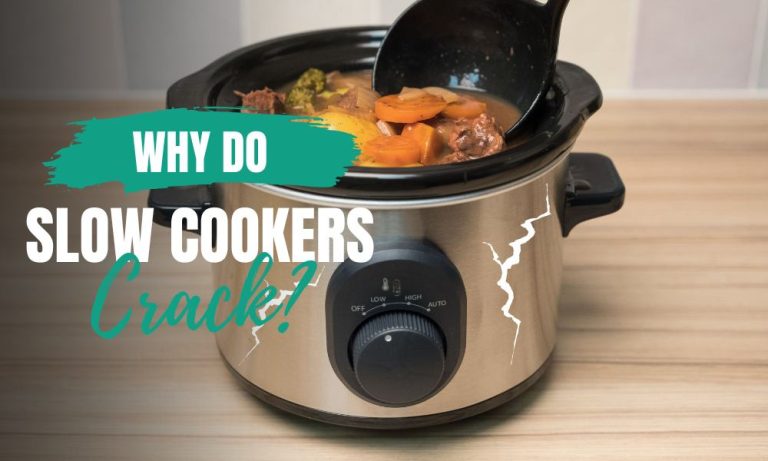Can You Overcook in a Slow Cooker? We Put it to the Test
First, let me answer the question, can you overcook in a slow cooker? The answer is more than simple; yes, we can overcook it.
However, the consequences and after-effects would need a long explanation. And that is what I will discuss in today’s write-up. If you are a slow cooker fan, this blog post is for you. Even if you want to discover if it is possible to overcook food in a slow cooker, we will guide you to your satisfaction.
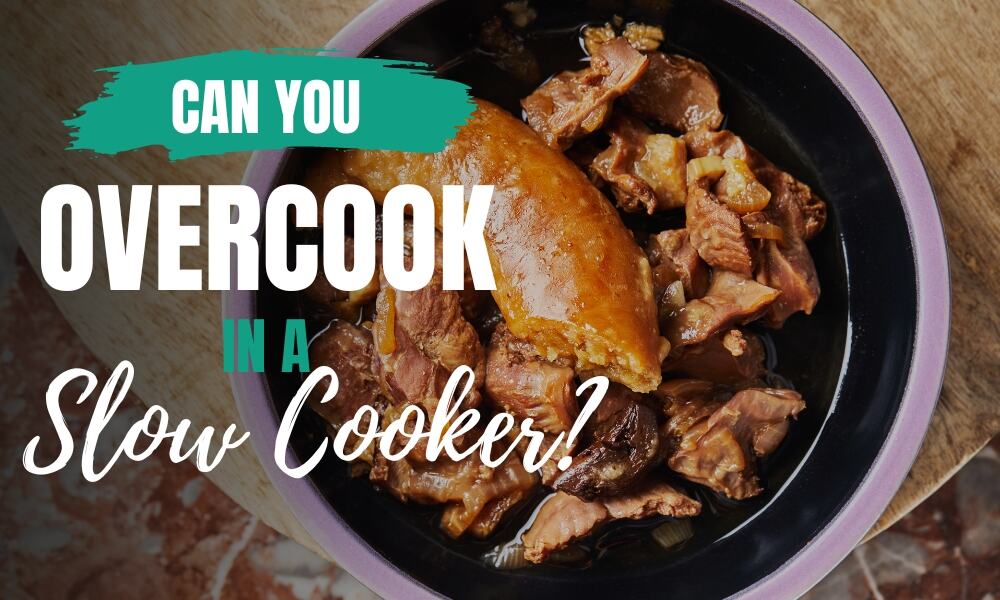
Contents
Why Seek Answers to Can You Overcook in a Slow Cooker?
Some of my readers might be in a dilemma about the need to dig out the answer to that question. If so, you’re in the right place! In this post, I have just put “Can you overcook in a slow cooker?” to the Test and shared my results. Once you read on to find out if it’s possible to overcook in a slow cooker and learn more about slow cooking, it will become my experience and our experience.
So what are we waiting for? Let us start our quest for detailed answers and start from the very scratch.
What is Overcooking?
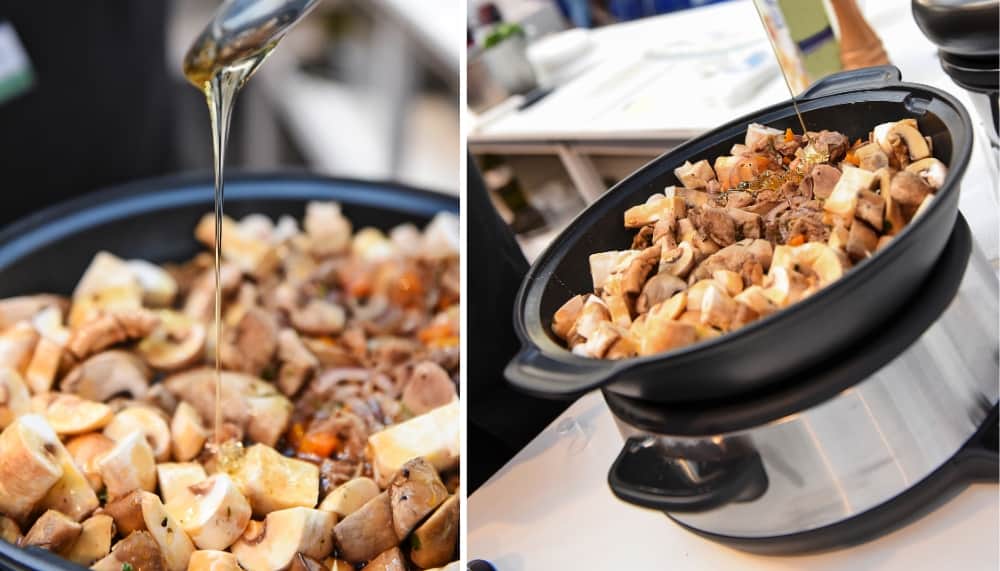
Overcooking is when food is cooked for too long, causing it to become dry and tough. It often happens when food is left to cook for too long or at too high a temperature. Overcooking can destroy the flavor and texture of the food and make it unappealing to eat.
In some cases, overcooking can even cause food poisoning. Slow cooking is a great way to reduce the chances of overcooking, as it allows food to cook slowly and evenly. Slow cookers are also great for infusing flavors and tenderizing tough cuts of meat.
But even with slow cooking, there is still a risk of overcooking if the temperature is too high or the cooking time is too long. For that, you must know about the working of a slow cooker.
How Do Slow Cookers Work?
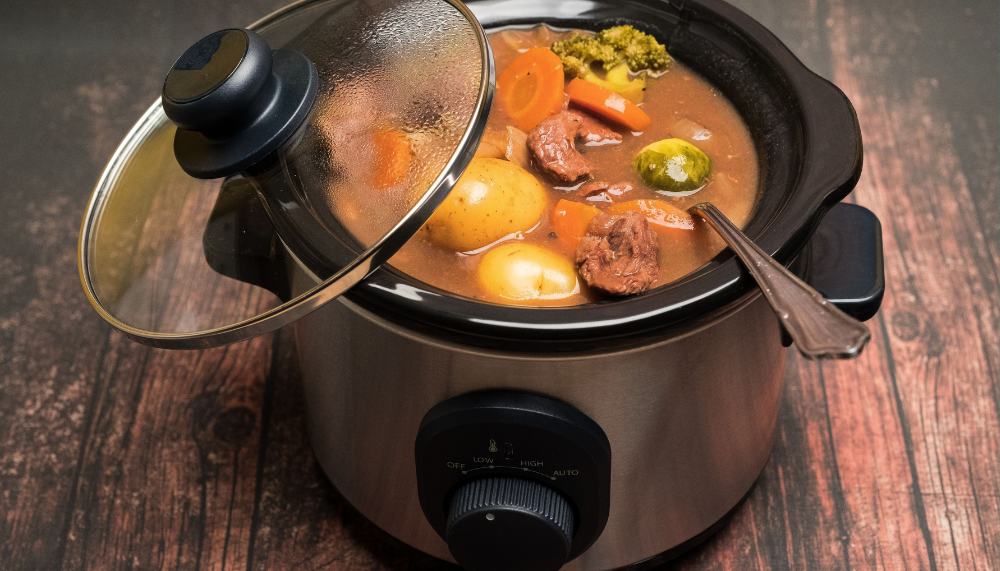
Slow cookers are great for making hearty meals with minimal effort. In a slow cooker, ingredients are placed in a ceramic pot which is then placed inside a metal outer container. The outer container contains an electrical heating element that heats the ceramic pot.
This heat is transferred to the food inside the pot, which is cooked slowly over several hours. This cooking method ensures the food is cooked evenly and retains moisture and flavor.
Also, slow cookers don’t produce much heat, so they are safer than stovetops. The low temperature means that you can leave the slow cooker unattended while you go about your day. Slow cookers also make it easy to regulate temperature and cooking time, allowing you to customize your meals easily.
As now you know how a slow cooker works, let’s have a glimpse of the impacts of overcooking in the light of the mechanism mentioned above.
What are the Consequences of Overcooking in a Slow Cooker?
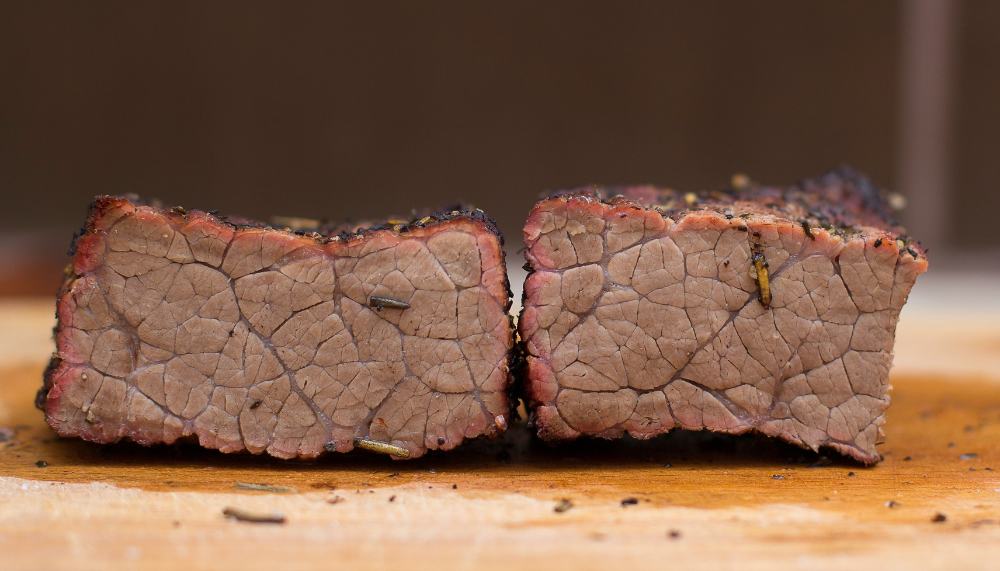
Overcooking in a slow cooker can lead to a few problems.
- First, it can cause the food to become dry and tough, as all of the natural juices and moisture have been cooked out.
- Additionally, some ingredients may be burned or charred if left in the slow cooker for too long. This can result in a burnt flavor that may be difficult to remove.
- Overcooking can also cause certain proteins to become rubbery or tough, making them difficult to chew or swallow.
- In addition to ruining the texture of your dish, overcooking can also reduce the nutritional content of your meal.
- This is because vitamins and minerals are lost when food is cooked for too long. Furthermore, overcooking can lead to an unpleasant smell and taste that can ruin the entire meal.
- Finally, overcooking in a slow cooker can cause the appliance to break down prematurely. Extensive exposure to high temperatures can cause the heating element to fail, and the unit may stop working altogether if used too often.
To avoid these issues, it’s important to follow the instructions on your slow cooker carefully. Monitor your food as it cooks and adjust the temperature or time settings. Let us elaborate on it in our way:
How to Avoid Overcooking in a Slow Cooker?
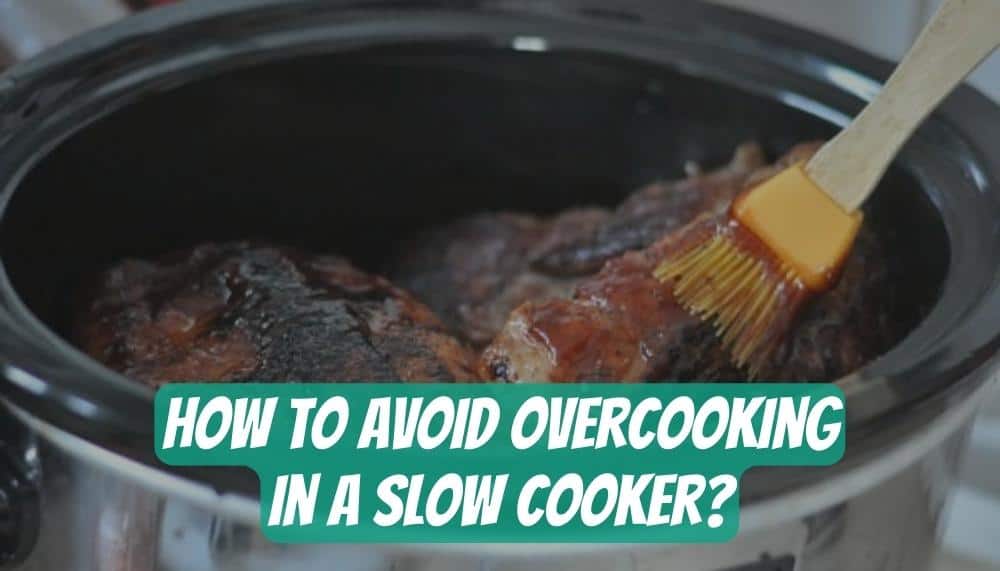
The key to avoiding overcooking in a slow cooker is ensuring you understand how it works and use the proper settings for your ingredients. First, determine what setting you should use for your particular recipe.
Next, adjust the cooking time according to the recipe. Add enough water or liquid to cover the ingredients since water evaporates as it cooks. Too much liquid could not evaporate and too little liquid could cause food to overcook and become dry.
Additionally, avoid opening the lid while the food is cooking since this can let steam escape and cause uneven cooking.
Finally, check the food at the end of the cooking time, even if your slow cooker has an automatic timer. Cooking times may vary based on different models, so test with a fork or thermometer if necessary. With proper care, you can ensure that your slow cooker meals turn out just right.
If you are not yet clear about what to do, here are 7 tips on how to avoid overcooking in a slow cooker.
7 Tips to Avoid Overcooking Your Slow Cooker Meal
Do you often find your slow cooker meals have become overcooked and dried out? Don’t worry; you’re not alone! Overcooking is a common problem for slow cooker meals, but it doesn’t have to be. In this blog post, we’ll provide 7 simple tips to help you avoid overcooking your slow cooker meal. Keep reading to find out more!
Check the Manual
Before you start cooking, it’s important to check the manual with your slow cooker. This will give you an idea of how long it will take for your food to cook properly and what settings are appropriate for different types of dishes.
For example, some slow cookers come with settings for “low” and “high,” which can be used for different types of recipes. It would help if you also took note of the minimum and maximum fill lines inside your slow cooker, as overfilling it can lead to overcooking.
Additionally, some slow cookers may have specific instructions or tips on how to avoid overcooking.
Cut Tough Meats into Smaller Pieces
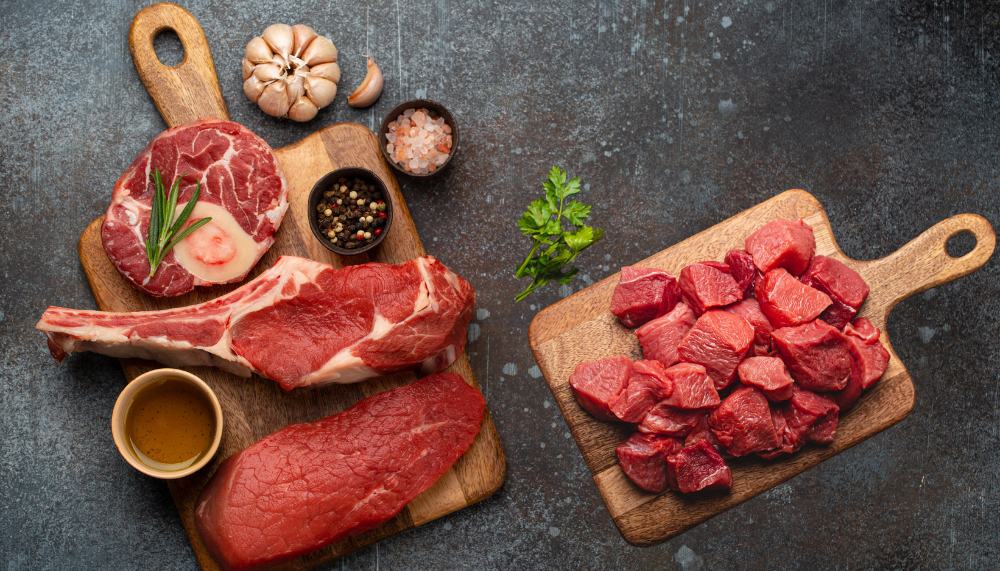
When it comes to slow cooking, not all meats are created equal. Certain cuts of meat, such as chuck roast or shoulder, are much more challenging than others and require extra attention to cook properly.
The key to successfully slow-cooking tougher cuts of meat is to cut them into smaller pieces before placing them in the slow cooker. This will help the meat cook more evenly and ensure it doesn’t overcook and become dry or tough.
When cutting tougher meats, use a sharp knife to ensure a clean cut, and don’t crush the meat with too much pressure. Once the meat is cut into smaller pieces, it’s ready for slow cooking.
Use the Right Amount of Liquid
When using a slow cooker, using the right amount of liquid is important. Too much liquid can cause food to become soggy and overcooked, while too little liquid can cause food to burn and stick to the pot. Generally, you should use at least 1 cup of liquid for every 4-6 cups of food in the slow cooker.
To ensure that your slow cooker meal turns out perfectly, consider the types of ingredients you add to the pot. For example, starchy foods like potatoes and pasta require more liquid than lean meats or vegetables.
It is also important to note that some liquids, such as tomatoes and wines, reduce significantly as they cook, so you may need to adjust the amount of liquid accordingly.
Finally, if you add frozen ingredients to the slow cooker, increase the liquid slightly. Frozen ingredients release more water than fresh ingredients during cooking, leading to an overly soupy dish.
By adding a bit more liquid than usual, you can avoid this problem and get perfectly cooked meals every time.
Don’t Overfill Your Slow Cooker
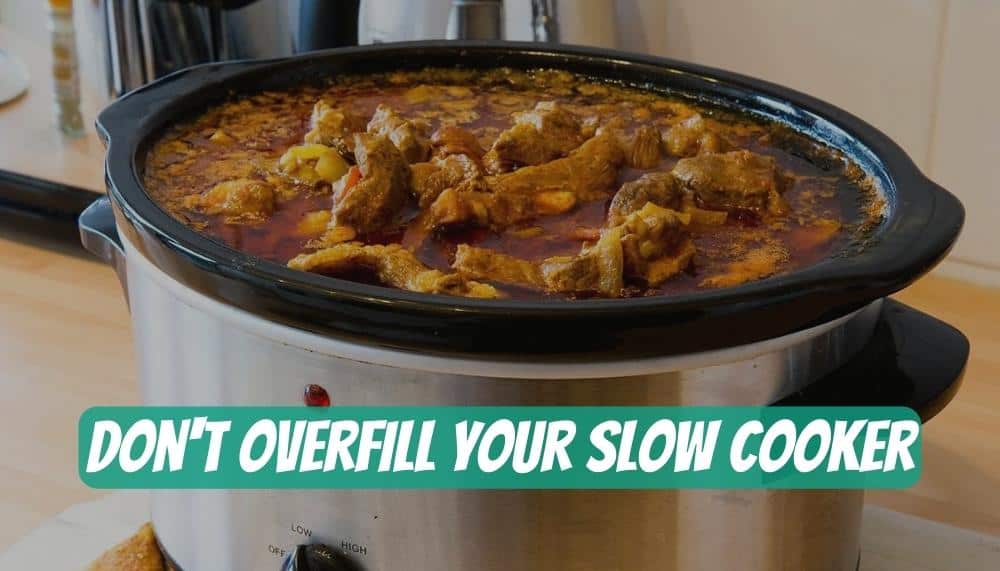
When it comes to slow cooking, one of the most common mistakes is overfilling the slow cooker. It’s important to remember that slow cookers should be at most two-thirds full. When you fill a slow cooker too much, it can cause the food to overcook and also result in liquids not being able to escape.
This can lead to an overcooked and dry meal. To avoid this, try to fill your slow cooker at most two-thirds full and always leave some room for expansion. Additionally, ensure that you stir the ingredients regularly throughout the cooking process so that all the food is cooked evenly.
Use Frozen Vegetables with Caution
Frozen vegetables can be a great way to save time in the kitchen, but it’s important to remember that they can easily overcook in the slow cooker. If you decide to use frozen vegetables, add them toward the end of cooking time.
Frozen vegetables should only cook for about an hour in a slow cooker, as they are already cooked and must be reheated. If you add them too early, the vegetables become mushy and lose flavor.
It’s also a good idea to reduce the amount of liquid in your recipe if you plan on using frozen vegetables, as they will add additional moisture. By following these tips, you can ensure that your frozen vegetables turn out perfectly cooked and delicious!
Know When to Add Dairy Products
Adding dairy products to slow cooker recipes can be tricky, as they can easily curdle if cooked too long. Adding your dairy products toward the end of the cooking time is best to avoid this. This is especially true for recipes like soups and stews that require long cooking times.
If possible, wait until the last 15-30 minutes of cooking to add cream, cheese, sour cream, and other dairy items. Add dairy items just before serving for dishes requiring shorter cooking, like casseroles.
Use your Slow Cooker on the Low Setting
When using a slow cooker, the key to preventing overcooking is to set the temperature to low. This will give your food time to cook thoroughly and evenly without becoming dry or overly soft. Low heat also helps keep the flavors of your ingredients locked in, so your meal will have maximum flavor.
Use the same temperature setting for all ingredients and dishes to ensure your food cooks properly. For example, if you cook vegetables and chicken simultaneously, ensure both are cooked on the low setting. This will help ensure that everything cooks evenly.
Also, check your manual before cooking, as some slow cookers have different settings for low and high temperatures.
By following these simple tips, you can easily avoid overcooking your slow cooker meal!
Final Thoughts
The answer to the question, can you overcook in a slow cooker is you can overcook food in a slow cooker. It’s important to be aware of this, as overcooking your food in a slow cooker can result in dry, tough, and unappetizing meals.
To prevent overcooking in a slow cooker, the best advice is to check the internal temperature of your food with a meat thermometer. Additionally, setting your slow cooker to the lowest setting and adding additional liquid can help to prevent overcooking.

Mery Webber
Mery Webber, the founder of Kitchen Aims, is a passionate home cook with extensive experience in the kitchen appliance industry. Through her blog, she aims to share her knowledge and help readers create the perfect kitchen.

